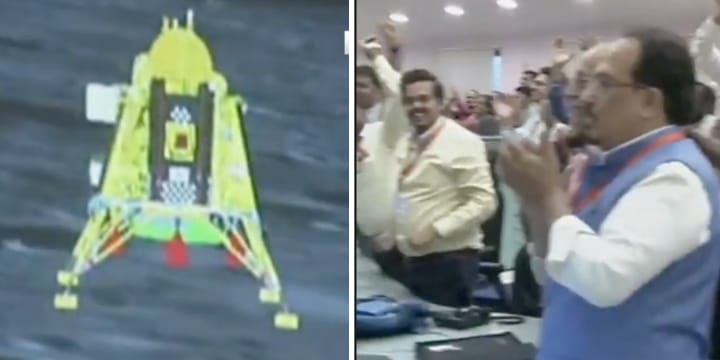Astronauts and space agencies around the world have been traveling to the moon for decades (no conspiracy theories tolerated here!), but India is the first country to have successfully landed a craft on the moon’s south pole. Six weeks after launching from a port in Andhra Pradesh, the craft, known as Chandrayaan-3, touched down, making history and drawing whoops of excitement from mission control at Satish Dhawan Space Center.
- Prime Minister Narendra Modi addressed the Indian Space Research Organization (ISRO) on the momentous occasion. In a conference call to the station to watch the landing, he told workers (via Sky News): “This is the heartbeat of 1.4 billion people. This is the new India, the new beginning, the new thinking of the new efforts.” He waved a small Indian flag as the craft came to land on the moon’s surface.
- The accomplishment is a major one for India and its space agency. Modi went on to say that the entire country is proud of what they’d done, describing it as an “historic moment.” He added: “This is a feature of the shine of India – we made a promise and we made it true on the surface of the moon. This is an historic moment, and for every Indian, we are all very proud.”
- The mission proves that the moon is not outside of reach for anyone. Modi said that the entire world should be inspired by India’s achievement as it shows that we can reach “the moon and beyond” if we work hard enough.
- He hopes this unmanned journey will give way to a manned one. Modi added that now that India has successfully landed a craft on the south pole of the moon, the next step would be to send astronauts there. It’s unclear what they hope to do there, however.
- So, what will Chandrayaan-3 do now? The craft will work for two weeks, running experiments to discover more about the mineral composition of the moon. India’s scientists hope to discover if water ice is present on the moon, as it could come in handy on future missions when it comes to fuel, water, and oxygen. The data is the main point of the expedition.



